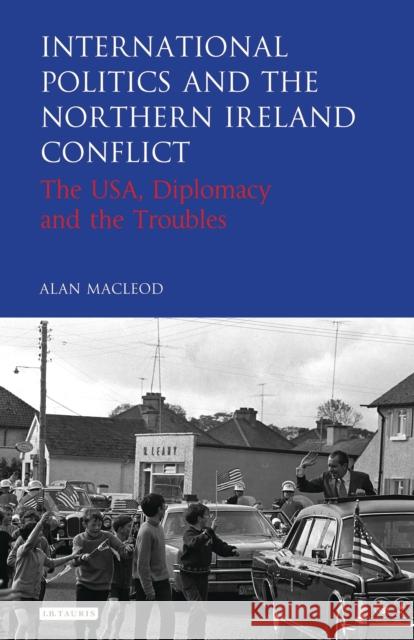International Politics and the Northern Ireland Conflict: The Usa, Diplomacy and the Troubles » książka
International Politics and the Northern Ireland Conflict: The Usa, Diplomacy and the Troubles
ISBN-13: 9781784535384 / Angielski / Twarda / 2016 / 288 str.
International Politics and the Northern Ireland Conflict: The Usa, Diplomacy and the Troubles
ISBN-13: 9781784535384 / Angielski / Twarda / 2016 / 288 str.
(netto: 631,80 VAT: 5%)
Najniższa cena z 30 dni: 644,49
ok. 30 dni roboczych
Bez gwarancji dostawy przed świętami
Darmowa dostawa!
In August, 1969 an outbreak of violence saw Northern Ireland's devolved Stormont government appeal to Westminster for assistance, marking the beginning of a conflict that would last nearly three decades. British troops, arriving as a temporary measure, would remain in the country for the next 38 years. The Republic of Ireland had repeatedly sued for involvement in the Northern Ireland political process, appealing to the UN, while across the Atlantic, Irish-American groups applied pressure on Nixon's largely apathetic administration to intervene. Senator Edward Kennedy campaigned for the Democrat party on a platform of Irish separatism, while 'Bloody Sunday' in 1972 heightened the sense of outrage felt by Irish and American-Irish alike. Insisting that the reaction to Bloody Sunday was a domestic matter, the British government forced Stormont into reluctant and unpopular political reform while Nixon, who wanted Britain onside for his Cold War objectives, was faced with increasingly influential Irish-American groups. As the situation got worse, international involvement in Northern Ireland intensified and, after the breakdown of the Sunningdale Agreement in May 1974, the British government begrudgingly began to concede that any solution would rely on Washington and Dublin's involvement. Using recently released archives in the United Kingdom, Republic of Ireland, and United States, Alan MacLeod offers a new interpretation of the early period of Northern Ireland's "Troubles" the bloody histories and factional conflicts which remain largely unresolved long after the Good Friday Agreement of April, 1998."











